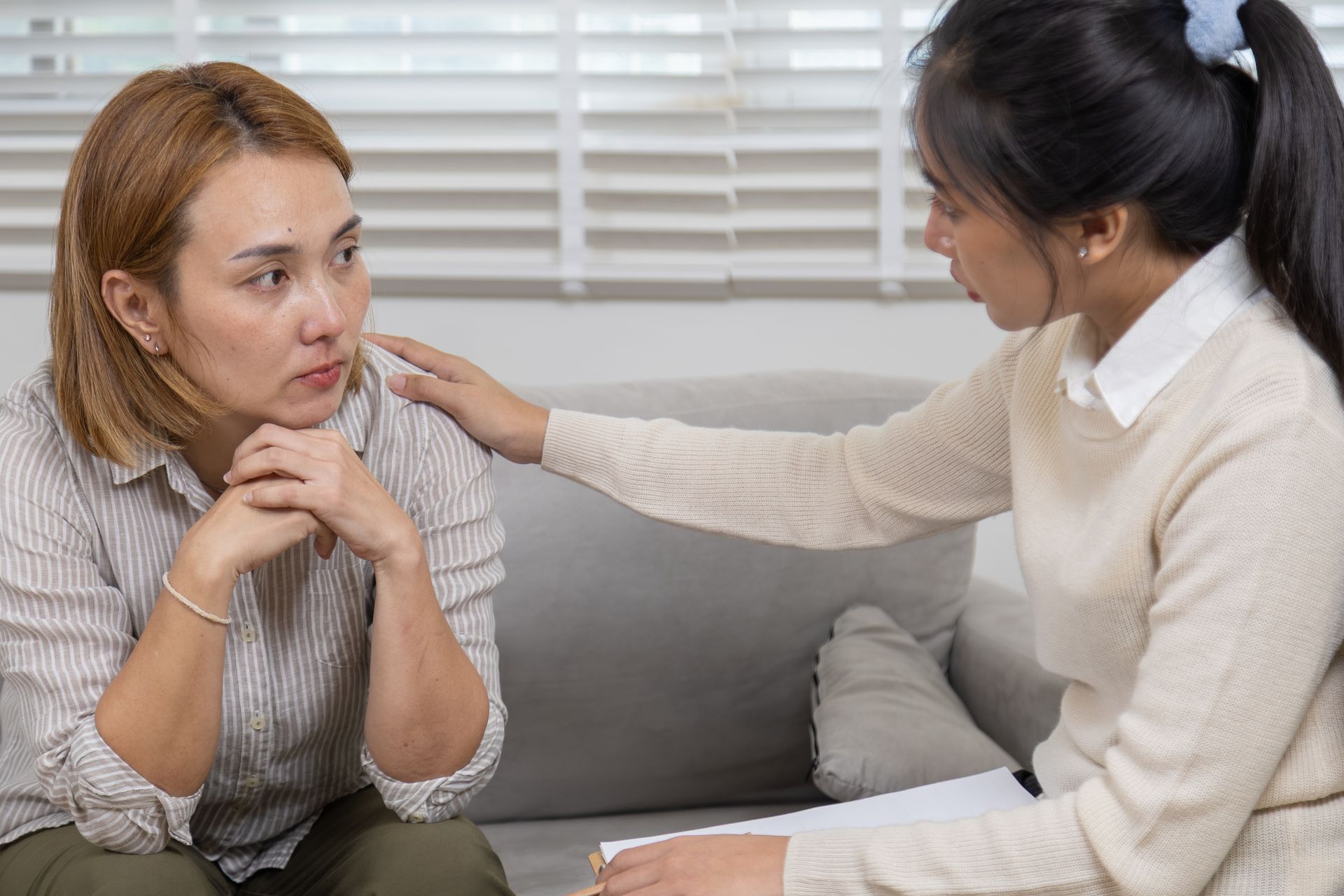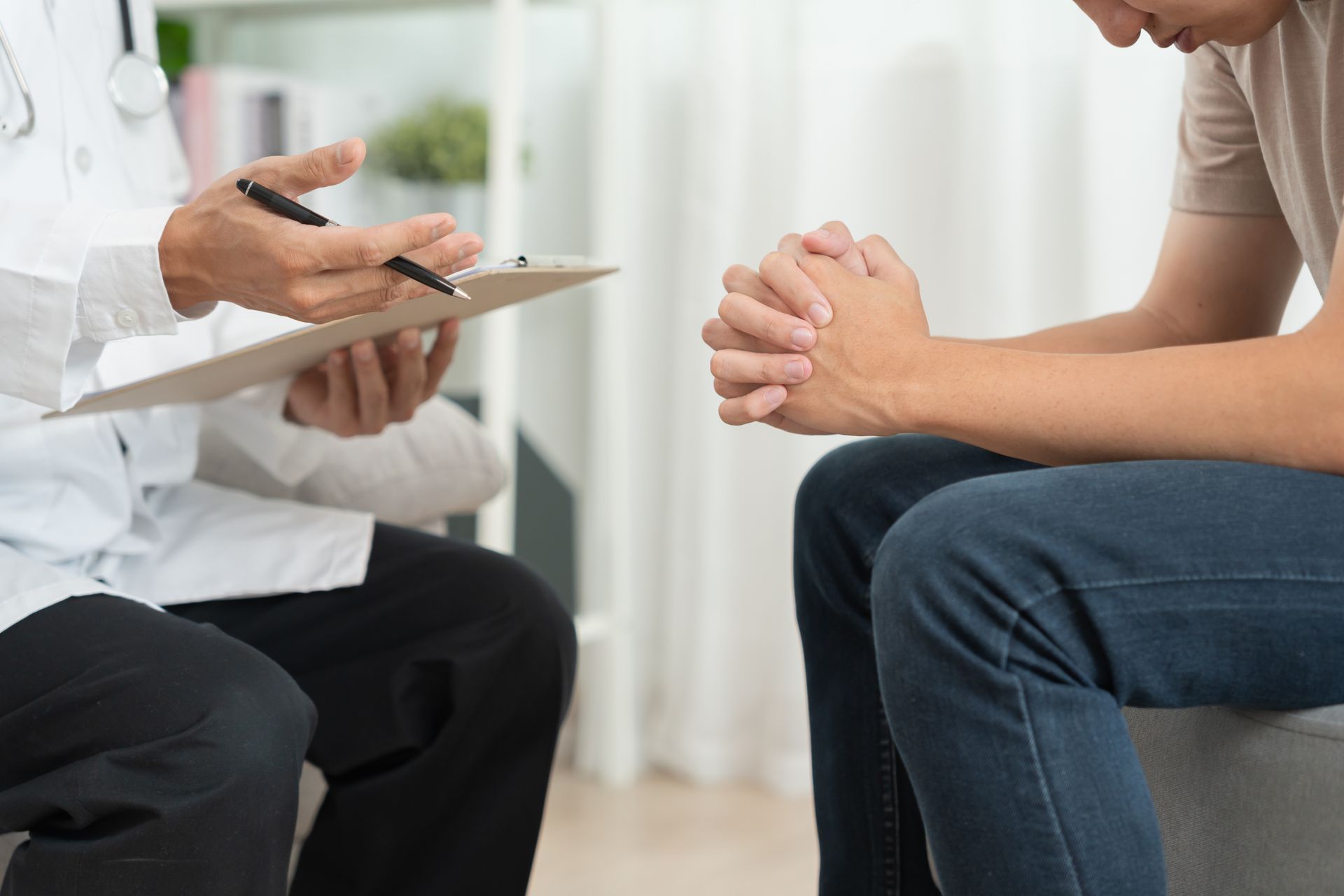The Best Methods for Handling Trauma

You might be experiencing it right now and that’s okay. Trauma is an emotional reaction to a traumatic incident such as an accident, rape, or natural disaster. Shock and denial are common reactions immediately following an occurrence. Long-term effects include erratic emotions, flashbacks, strained relationships, and even physical problems like as headaches or nausea.
Trauma may be caused by a variety of factors, and people can react to it in a variety of ways. Ultimately, this indicates that there is no one or correct approach to dealing with trauma. Traumatic stress can occur as a result of a terrible incident or time period, such as COVID-19, or it can be caused by severe, unpleasant childhood events.
Whatever the cause of your traumatic stress, it is critical to learn how to cope with trauma in a healthy way so that you may recover and go ahead in life. Continue reading to find out more about coping with trauma.
- What Exactly is Traumatic Stress?
- Best Methods for Handling Trauma
- Find Professional Help
- Final Thoughts
What Exactly Is Traumatic Stress?
Trauma can be hard to explain in simple words. However, trauma can be easily identified by how someone reacts to a life-changing event. Exposure to painful, unsettling, or upsetting experiences can leave long-lasting wounds, and the stress of the event might be overpowering in certain situations. Traumatic stress can develop as a result of a traumatic experience, firsthand witnessing of a distressing incident or frequent and detailed exposure to unpleasant situations. A first responder, for example, may be traumatized after witnessing the aftermath of heinous events.
The nature and degree of the trauma, the age at which the individual experienced it, and other risk factors can all influence how people react to traumatic stress.
People with cognitive vulnerabilities, such as a history of head trauma or a low IQ, are more likely to have severe trauma symptoms connected to post-traumatic stress disorder.
Traumatic stress symptoms, both emotional and physical
Following a traumatic event, people may experience a variety of mental and physical symptoms.
Typical traumatic stress reactions include:
- Swings in mood
- Irritability
- Anxiety levels have risen.
- Anxiety attacks
- Breathing quickly
- trembling or shaking
- Concentration problems
- Appetite loss
- Sadness
- Sleep problems
- Pains and aches
Best Methods for Handling Trauma
Trauma should be taken seriously and recovery can be a long process. Nevertheless, there are treatments that can help you get through it. Whatever symptoms you're having, you should make sure you're coping with trauma productively. Nothing will ever take your experiences away from you, but adopting the correct actions can help you manage your symptoms and reconstruct your life.
1. Express your emotions
Learning to embrace the feelings you're battling with is a vital component of dealing with unresolved trauma - granted, this is definitely easier said than done. The fact is that if you try to suppress or dismiss your emotions, you may end up feeling much more agitated in the long term. Whether you're furious, guilty, or shocked by what happened, you should allow yourself to feel these emotions without judgment.
It takes time to recuperate from trauma, and you won't be able to do it immediately. It's fine if you're experiencing powerful or explosive emotions. Don't put too much pressure on yourself to return to normalcy. Instead, be patient and allow yourself ample time to recuperate. Pay attention to the warning signals.
2. Prioritize self-care.
It's easy to disregard your fundamental needs when dealing with trauma. A poor diet or a lack of sleep may aggravate traumatic stress symptoms. You will have the power to recuperate if you take better care of yourself. Self-care is vital for living a balanced, healthy mind-body existence.
Many individuals, for example, struggle with sleeplessness after a stressful incident, but excellent sleep hygiene can help you get the rest you need. This is due to a significant link between sleep and mental wellness. After a hard day, exercise can help you relax and unwind. The bottom line is that if you're attempting to figure out how to live with trauma, you must first understand it.
3. Maintain contact with family and friends
While it's natural to withdraw after a painful situation, your interactions with others may provide you with strength. Some research even suggests that social support might lessen the quantity of cortisol produced by the body when you're stressed or overwhelmed.
While you should not be afraid to address traumatic stress with your loved ones if you feel comfortable doing so, any sort of social connection might be useful if you do not disclose your trauma. Spending time with people you care about might really help you feel more like yourself again.
4. Make an effort to eliminate stress in your life.
While stress is a normal part of life, it may be tough to deal with, especially when attempting to recuperate from a traumatic event. As you go through the healing process, try to reduce the amount of stress in your life. Check to see if you're dealing with stress in a healthy way.
When you're feeling overwhelmed, the following relaxation methods will help you calm down:
- Anxiety breathing exercises
- Yoga Journaling for Mental Health Meditation for Stress
- Make time for things that you enjoy as a way to unwind at the end of the day.
5. Professional traumatic stress therapy alternatives
If you don't know how to deal with trauma on your own, or if your symptoms don't seem to be getting better with time, you should consult a specialist. There are various evidence-based treatments available to assist you in dealing with trauma.
Cognitive behavioral therapy (CBT), a kind of therapy that helps people discover and alter harmful thought patterns, is a very effective treatment for traumatic stress. As a result, CBT for PTSD is a relatively prevalent treatment. CBT may potentially lessen the likelihood of having PTSD, according to research.
Other trauma treatments and therapies, such as eye movement desensitization and reprocessing (EMDR) and stress inoculation training (SIT), can be quite effective.
Find Professional Help
There is help for you. You don’t have to do it alone. If the symptoms of traumatic stress are interfering with your daily life, don't be afraid to get treatment.
Virtual Psychiatric Care is an online psychiatric and counseling platform where you may connect with a certified therapist who can educate you on how to deal with trauma in a constructive, healthy, and successful way. You'll be able to address your feelings, manage your symptoms, and move on from your trauma if you have the direction and support of a mental health expert.
Final Thoughts
Trauma is the response to a deeply distressing or disturbing event that overwhelms an individual’s ability to cope, causes feelings of helplessness, diminishes their sense of self and their ability to feel a full range of emotions and experiences.
Individuals who have experienced trauma benefit from dealing with a trauma-focused or trauma-informed therapist or treatment. The majority of trauma-informed therapists will use a variety of therapies and techniques.
The Safe and Sound Protocol is intended to lower stress and increase aural awareness while also increasing social involvement and resilience. The way is opened for enhanced dialogue and more successful therapy by soothing the physiological and emotional states.











